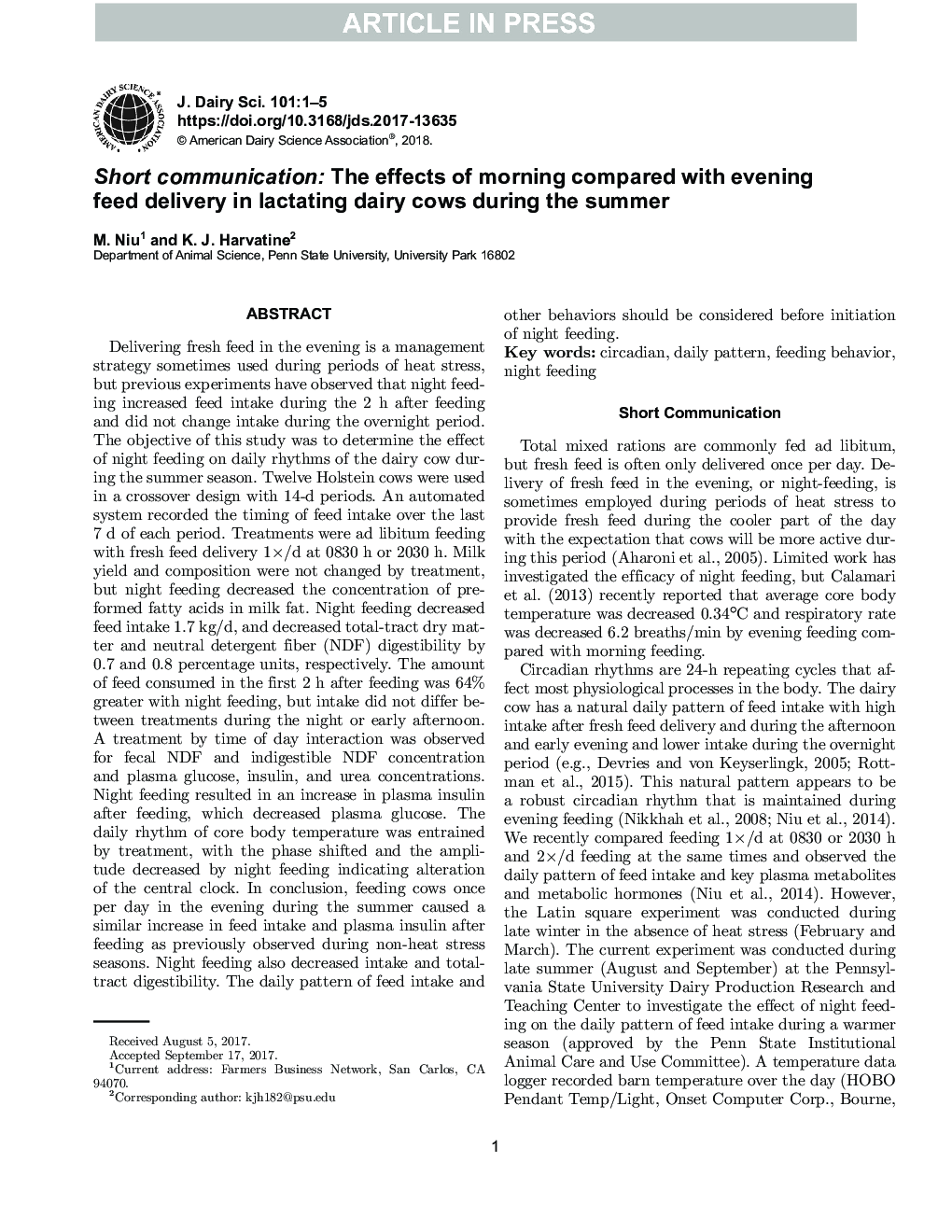| Article ID | Journal | Published Year | Pages | File Type |
|---|---|---|---|---|
| 8501656 | Journal of Dairy Science | 2018 | 5 Pages |
Abstract
Delivering fresh feed in the evening is a management strategy sometimes used during periods of heat stress, but previous experiments have observed that night feeding increased feed intake during the 2 h after feeding and did not change intake during the overnight period. The objective of this study was to determine the effect of night feeding on daily rhythms of the dairy cow during the summer season. Twelve Holstein cows were used in a crossover design with 14-d periods. An automated system recorded the timing of feed intake over the last 7 d of each period. Treatments were ad libitum feeding with fresh feed delivery 1Ã/d at 0830 h or 2030 h. Milk yield and composition were not changed by treatment, but night feeding decreased the concentration of preformed fatty acids in milk fat. Night feeding decreased feed intake 1.7 kg/d, and decreased total-tract dry matter and neutral detergent fiber (NDF) digestibility by 0.7 and 0.8 percentage units, respectively. The amount of feed consumed in the first 2 h after feeding was 64% greater with night feeding, but intake did not differ between treatments during the night or early afternoon. A treatment by time of day interaction was observed for fecal NDF and indigestible NDF concentration and plasma glucose, insulin, and urea concentrations. Night feeding resulted in an increase in plasma insulin after feeding, which decreased plasma glucose. The daily rhythm of core body temperature was entrained by treatment, with the phase shifted and the amplitude decreased by night feeding indicating alteration of the central clock. In conclusion, feeding cows once per day in the evening during the summer caused a similar increase in feed intake and plasma insulin after feeding as previously observed during non-heat stress seasons. Night feeding also decreased intake and total-tract digestibility. The daily pattern of feed intake and other behaviors should be considered before initiation of night feeding.
Related Topics
Life Sciences
Agricultural and Biological Sciences
Animal Science and Zoology
Authors
M. Niu, K.J. Harvatine,
